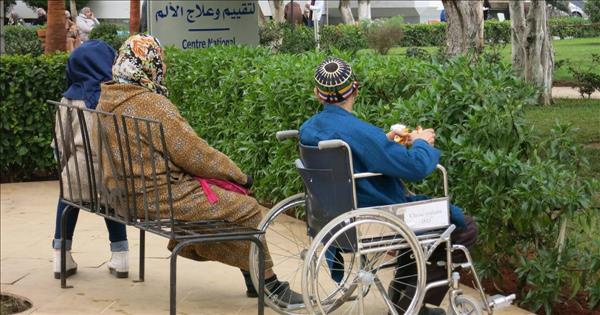
Nearly Half of Morocco's Sick Elderly Can't Pay for Healthcare
The Minister for Solidarity, Equality, Family, and Social Development drew a stark image of the situation of the elderly in Morocco. In a report presented on October 4, she says that is far from being able to cope with the needs of its aging population.
While the elderly population in Morocco comprises almost 3.2 million people, it is expected to reach 10 million by 2050. Currently, their situation is increasingly under threat, finds the study published Wednesday in Rabat.Where is my money? The survey shows that older people suffer from several forms of economic vulnerabilities, with 8.6 percent of the Moroccan elderly considered vulnerable to .
The study also found that elderly people in rural areas suffer almost four times the rate of poverty (19.5 percent) than those in urban areas (5.2 percent).The troubling situation is further illustrated by the fact that 64 percent of the elderly people do not have their own resources, and that 34 percent survive only on an income barely covering their daily needs. Without family solidarity, the majority of the elderly suffer gravely in economic terms, indicates the study.
Where are my ? Lack of resources and neglect of push the elderly population to continue to working. The study shows that a large number of elderly people remain active and work in the informal sector after retirement.They generally find jobs in the seasonal (12.8 percent) or occasional (10.8 percent) agricultural sector.
Results of the general population and housing census carried out in 2014 indicate that at the national level, 34.5 percent of the employed elderly are considered too old to work, with higher rates among women (44.2 percent) than among men (24.5 percent).Nevertheless, statistics show that the rate of elderly people active in the marker has declined significantly over the last three decades, from 42.9 percent in 1960 to 19.5 percent in 2015.
Due to poor financial conditions, 96.2 percent of elderly people live with their families. Only 4.2 percent live alone and a smaller rate, less than 3.8 percent resides with people outside of their families, mostly women.Where are my doctors? The study indicates that the elderly suffer from a variety of worry health conditions, resulting from aging, illnesses, and chronic disease.
The health situation of elderly people is particularly in danger as in Morocco there are only 10 geriatricians per 124,000 elderly.The 2011 Population and Family Health Survey (ENPSF) showed that more than 57.5 percent of the elderly (49.3 percent of men and 65.3 percent of women) have a chronic disease. Yet, only 64 percent of sick elderly people benefit from .
Meanwhile, the 2015 household panel survey revealed that almost half of the elderly who reported being sick or injured did not use health care services due to a lack of financial means. 45.5 percent said they could not pay for the consultation and 4.4 percent said cited the high cost of transport.Yet, the study notes that not receiving treatment for chronic diseases can seriously affect life expectancy among people aged 60 and older. On average, men lose almost four years of their lives and women lose 5.5 years.
The study, carried out by the National Observatory on Sustainable Development in partnership with the Ministry of Family, Solidarity and Sustainable Development, examined the economic, social, and health situation of this segment of society, based on the results of statistical field operations.The objective of this study was to identify the challenges facing Morocco in order to provide an adequate standard of living for its population in old age.
One out of four Moroccans will fall in this category by 2050, and thus the study calls for Morocco to double its efforts to address the problems faced by its elderly population.
Legal Disclaimer:
MENAFN provides the
information “as is” without warranty of any kind. We do not accept
any responsibility or liability for the accuracy, content, images,
videos, licenses, completeness, legality, or reliability of the information
contained in this article. If you have any complaints or copyright
issues related to this article, kindly contact the provider above.
Most popular stories
Market Research

- Pepeto Presale Exceeds $6.93 Million Staking And Exchange Demo Released
- Citadel Launches Suiball, The First Sui-Native Hardware Wallet
- Luminadata Unveils GAAP & SOX-Trained AI Agents Achieving 99.8% Reconciliation Accuracy
- Tradesta Becomes The First Perpetuals Exchange To Launch Equities On Avalanche
- Thinkmarkets Adds Synthetic Indices To Its Product Offering
- Edgen Launches Multi‐Agent Intelligence Upgrade To Unify Crypto And Equity Analysis


















Comments
No comment